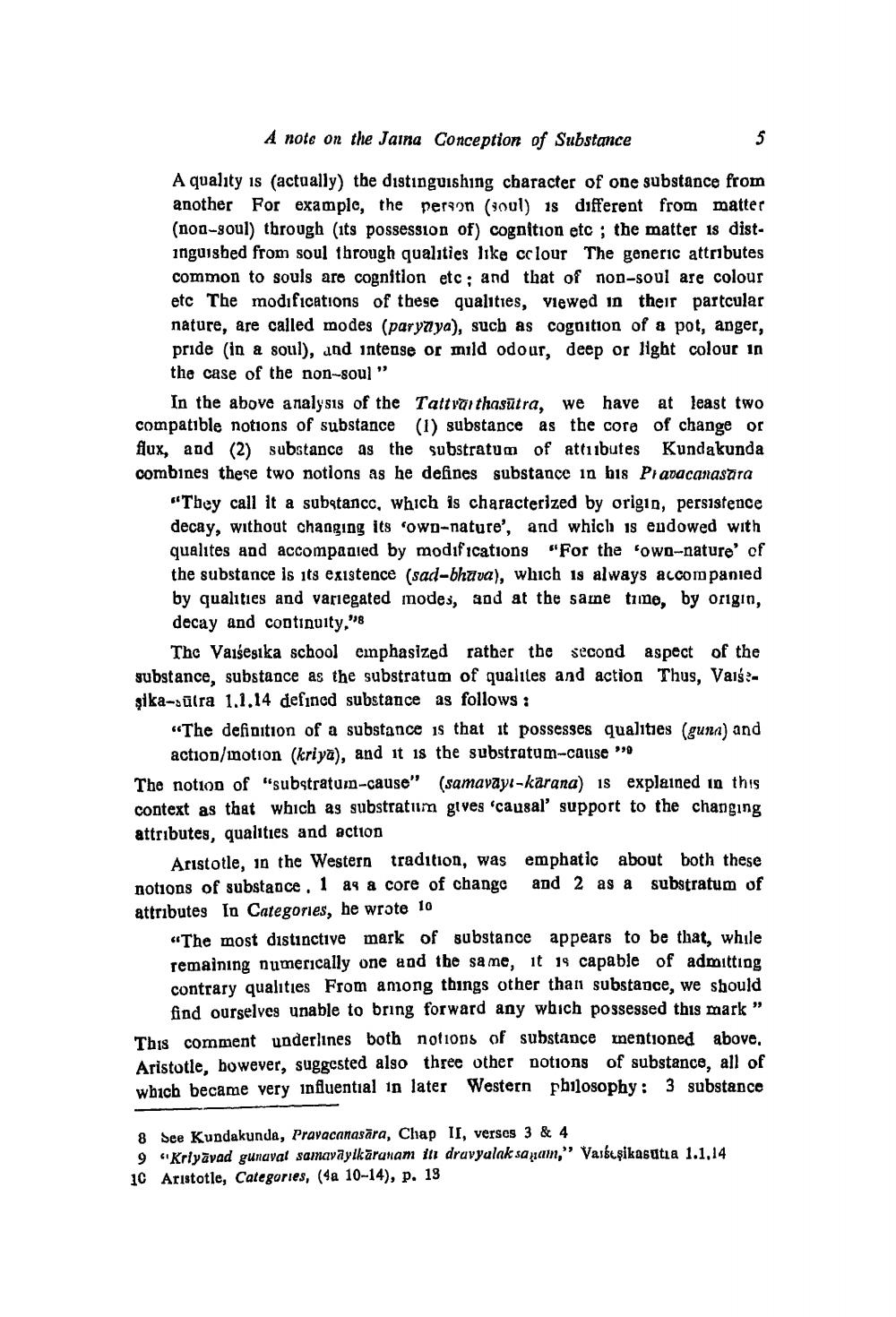________________
A note on the Jaina Conception of Substance
A quality is actually) the distinguishing character of one substance from another For example, the person (300l) is different from matter (non-soul) through its possession of) cognition etc; the matter is distinguished from soul through qualities like cclour The generic attributes common to souls are cognition etc; and that of non-soul are colour etc The modifications of these qualities, viewed in their partcular nature, are called modes (paryaya), such as cognition of a pot, anger, pride (in a soul), and intense or mild odour, deep or light colour in the case of the non-soul"
In the above analysis of the Tattvarthasūtra, we have at least two compatible notions of substance (1) substance as the core of change or flux, and (2) substance as the substratum of attuibutes Kundakunda combines these two notions as he defines substance in his Pravacanasara
"They call it a substancc, which is characterized by origin, persistence decay, without changing its own-nature', and which is endowed with qualites and accompanied by modifications "For the 'owo-nature of the substance is its existence (sad-bhava), which is always accompanied by qualities and variegated modes, and at the same time, by origin, decay and continuity,"8
Thc Vaišesika school emphasized rather the second aspect of the substance, substance as the substratum of qualites and action Thus, Vaiś:şika-sūtra 1.1.14 defined substance as follows:
“The definition of a substance is that it possesses qualities (guna) and
action/inotion (kriya), and it is the substratum-cause" The notion of "substratum-cause" (samavayi-karana) is explained in this context as that which as substratum gives 'causal support to the changing attributes, qualities and action
Aristotle, in the Western tradition, was emphatic about both these notions of substance. 1 as a core of change and 2 as a substratum of attributes In Categories, he wrote 10
“The most distinctive mark of substance appears to be that, while remaining numerically one and the same, it is capable of admitting contrary qualities From among things other than substance, we should
find ourselves unable to bring forward any wbich possessed this mark" This comment underlines both notions of substance mentioned above, Aristotle, bowever, suggested also three other notions of substance, all of wbich became very influential in later Western philosophy: 3 substance
8 See Kundakunda, Pravacanasāra, Chap II, verses 3 & 4 9 Kriyāvad gunuval samaväylkāranam iti dravyalak sayan," Vaibusikasutia 1.1.14 10 Aristotle, Categories, (4a 10-14), p. 13




